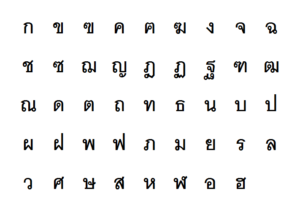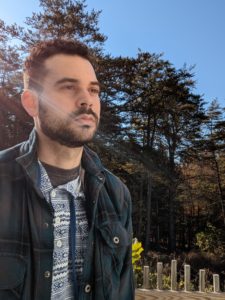Most people I know have Duolingo or some other language-learning app downloaded on their phones. This implies a desire to learn a new language. Of all these people, very few end up actually using the language or progressing beyond the app to other means of language study. Not that using a language learning app doesn’t have its benefits; it’s actually a great starting point for delving into the world of learning a new language. But there is a missing piece that I feel prevents adults from getting to the point where they can confidently say that they “speak” a language. This incredibly obvious missing piece turns out to be: actually using the language.
I don’t consider myself to be a language-learning expert, but I began learning Thai around four years ago and messed around with a few different language-learning apps. They gave me a foundation of some basic words and phrases, but when I went to Thailand to stay with a friend, I ended up using only the most basic of phrases and didn’t dare to venture outside the zone of things I was absolutely, 100% confident about. Because of this, I never pushed myself or dared to use new vocabulary. My Thai was stagnant, mostly because I lacked the confidence to use full sentences for fear of sounding bad, and English was the easier option in almost every situation.

It wasn’t until much later that I saw these very early versions of what is now the popular youtube trend of “polyglots” walking around with cameras and speaking to people in their native tongue. Although I find these types of videos greatly flawed and a bit played out now, at the time, I found great inspiration in them. I loved how certain people reacted when someone they didn’t expect spoke their language to them. I felt more motivated than ever to go out and do the same. I began reading about language learning techniques from a cognitive standpoint. What was the best way for my hardened adult brain to achieve fluency in a language? The answer ends up being too simple: be regular in your study (ideally every day) and use the language as much as you can. The method of study is less relevant. Apps, books, flashcards, and videos are all great resources but are just half of the language-learning process. If I wanted to actually learn a language, I would have to go out and use it. So I did. Without donning any hidden camera, I tried to find restaurants and market vendors near where I lived that spoke Thai, and I would engage in conversation with them.
I realized the key was not how perfect you were but how unafraid you were of making a mistake. As humans progress through life, we develop a filter in our brains. We have more layers between what we think and what we say. This is what impedes many adults from pursuing language learning beyond the basics. We think it would be humiliating to speak incorrectly, as if we are stooping down to a child’s level. This is the biggest barrier to learning. Once I overcame the fear of messing up or sounding bad, I saw exponential growth in my Thai speaking skills. I was suddenly using and hearing new vocabulary, forming longer sentences, and meeting new people. It was a win-win.
I then met my now-wife from Taiwan and reached a point where it seemed more practical to begin learning Mandarin. Thankfully, I had these foundational skills for learning languages already set in place. The amazing thing about language learning is that all the skills you get from learning one language make you better at learning another. I applied all the habits I gained from learning Thai to learning Mandarin. From the beginning, I noticed myself being less afraid of speaking Mandarin to my wife and other mandarin speaking friends even though I had just begun this learning process. My proficiency was increasing at twice the speed it was when I started my Thai learning journey. The language learning skills were completely transferable.

Fast forward to now. My Thai is not as good as it once was (if you don’t use it, you lose it!), but I am around a B2 – C1 level in Mandarin (fluent, but by no means mastered). I use flashcards to learn new words and then seek people to speak with to put the vocabulary to use. I generally use a language exchange site or a tutoring website like Italki to find people to talk with, although it does help that my wife is Taiwanese. The formula is simple. Study regularly, and speak regularly. No magic app or technique will make you speak a language. It is natural to be bad at a new skill when first adopting it, and language is no different. Being okay and accepting you are not perfect is how to begin the learning process. So go out and begin speaking the language you desire to learn, regardless of your skill level and who knows, you might even make a few connections in the meantime.

Dylan
Language learning enthusiast and food tourist


Comments
Pratibha Bhattarai
Absolutely! You should be unafraid to use the language to actually speak it.
Pingback: The Saturation Point - Upgraded US